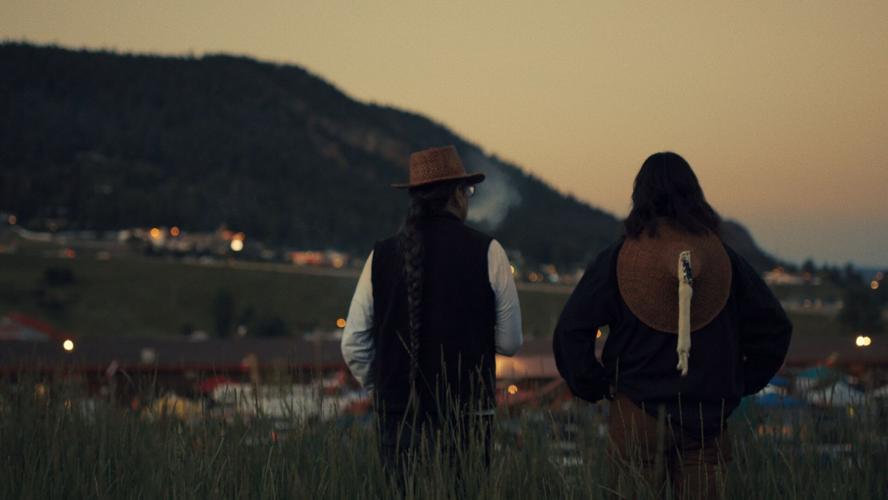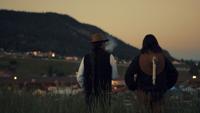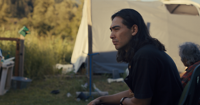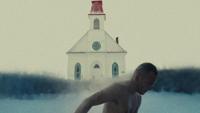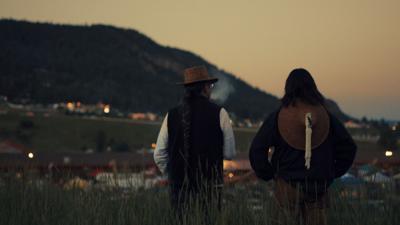The National Board of Review named this film as Best Documentary. It won the U.S. Documentary Directing Award at the 2024 Sundance Film Festival where it premiered. Other places like the Gotham Awards and the Spirit Awards have also recognized this film. The 97th Academy Awards placed it on its annual shortlists. There's a chance that it could get nominated. It reminded me of the Oscar-winning film, Spotlight (2015) in that they're basically dealing with the same subject. Spotlight was about child sex abuse within the Catholic Church. It focused on news reporters trying to expose the truth. This film is also about child sex abuse, as well as child abuse in general, not within the Catholic Church but with organizations connected to the Catholic Church.
The setting is the Williams Lake First Nation, which is nicknamed the Sugarcane Reservation. The Williams Lake First Nation is in British Columbia, Canada, about seven hours north of Seattle, Washington. Starting in 1894, the Canadian government forced Indigenous children into boarding schools, which were run by the Catholic Church. One such boarding school is St. Joseph's Mission. Rumors of abuse and even missing children have always swirled that school until it closed 40 years ago. This film is about the survivors of those schools and their families, along with the investigation to uncover the nature of the abuses and what happened to many of those missing children who are presumed dead.

The co-director here is Julian Brave Noisecat who is also on-camera in this film. Julian is basically doing this film about his father, Ed Archie Noisecat who is one of the survivors of St. Joseph's Mission. The film doesn't have traditional sit-down interviews. Julian will have conversations with his father and the camera will be like a fly-on-the-wall. Given the sensitive matter and given that he's speaking to abuse survivors, having the camera not be intrusive was probably important to Julian. Yet, there isn't any voice-over narration either. Therefore, there isn't a lot of information that is conveyed or learned about his subjects. We see Ed Archie Noisecat doing some wood sculpting or wood carving. Other than that, we don't get much more about him.
This would be fine because the film focuses on Charlene Belleau, an investigator who is putting together the pieces of what happened at St. Joseph's Mission and uncovering all the missing or dead children. However, if one was expecting a film like Spotlight, one might be disappointed. Spotlight was really about the investigation and the steps that were taken to reveal the truth. This film isn't really about the investigation as much as it could have been. We have scenes with Belleau where she makes phone calls and pulls records, but there's no building of an investigation like in Spotlight or that you would see in an average episode of Law & Order: Special Victims Unit (1999).

There's not much history or context that this film provides. The film does provide some. There's archival footage, which helps, but the film is very much in the present. Yes, the film is about unearthing the past, but it keeps that past at a distance. We occasionally hear testimonies from the survivors about what they experienced, but it feels more like a hangout film where there is this dark cloud metaphorically speaking overhead. Yet, there's no real delving or deeper examination. The topic is always at hand, but there is a distance emotionally speaking from that topic that this film possesses. The only effective moment is when a survivor goes to the Vatican to confront officials there and share his story. It's not a confrontation on a huge dramatic level, but it feels like a rare moment when we're pulled closer instead of kept at a distance.
Rated R for some language.
Running Time: 1 hr. and 47 mins.
Available on Hulu / Disney +.



